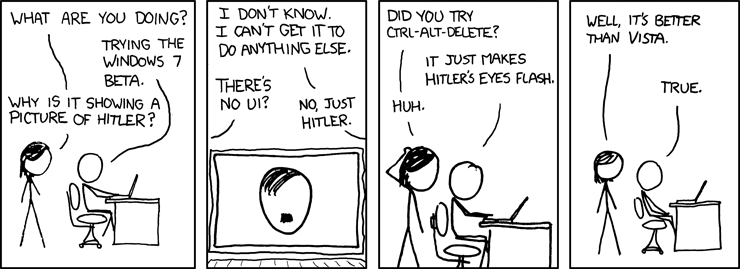Over the last week (while I've been working away, and needing the use of my Ubuntu notebook) I've continued to have issues regarding the weird X freezes I've been having sporadically for the last few weeks (X freeze on Notebook - solved?). Unfortunately, all the fiddling around with the system were to no avail, and the problem continued.
Seeing the claim that the bug was resolved in the upcoming Ubuntu 9.10 "Karmic Koala" release, I decided to update the system to the current alpha version of Karmic. I did this with some trepidation, as I would usually wait until the official release before updating Ubuntu. Interestingly, I've yet to find any irritating alpha bugs (but it's early days) - it's also a bit early to say whether the X freeze bug has really been resolved. If not, I'll do a fresh reinstall. As I type this, I've had a cumulative uptime of 10h42m...so let's hope this is sorted, as it's a bit of a showstopper bug.


